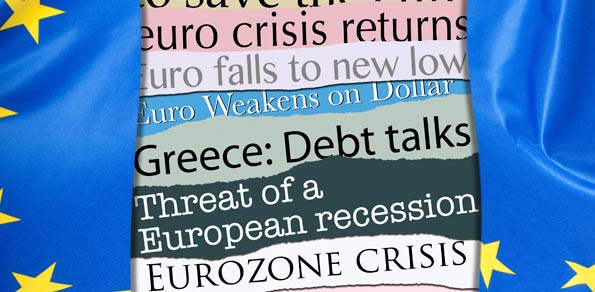German bonds had a second consecutive positive session on the back of bad EMU eco data whereas US bonds booked small gains. In a risk off sentiment, equities corrected further off the highs, commodities were dropped and on intra-EMU bond markets, spreads widened for a third straight day. Losses in EUR/USD were limited but will continue to grow.
German PMI’s reported far below consensus, which pushed German bonds higher. Both in France and in Germany, manufacturing PMI’s fell below the 50 reporting at 47.6 and 48.1 respectively. These data were forerunners for weaker EMU PMI are which were discounted by the time of the release.
At the end of the day, the German yield curve shifted 3.1 (2-yr) to 6.8 bps (5/10 yr) lower. In the US, the curve bull steepened with yield changes ranging between -0.4 bps at the short end and -2.4 bps at the very long end.
On intra-EMU bond markets, spreads versus German bonds widened a again today for 3 days in a row. The Spanish/Italian spreads added 16 bps, the Belgian 10 bps, the Austrian/French 6 bps and the Finnish/Dutch spreads 3 bps. As on all other markets, the widening occurred in one big move following the weaker PMI’s. Worries once again are beginning to effect bond yields for Spain and Italy.
The Financial Times reported this morning on a proposal by the European Commission regarding raising the European firewalls. EU leaders have a self-imposed end of March deadline to solve the issue and a two-day meeting is scheduled next week. In the run-up to this meeting, all sorts of rumors and headlines might spark volatility on markets, just as we saw in the run-up to similar EU meetings earlier this year and last year.
The EC has three proposals:
The first one, preferred by the EC, would take the unused guarantees from the existing EFSF and insert them into the new ESM. That would initially raise the European firewall to €940B but this would lower to €740B in the long-term, deducting the €200B already committed to Greece, Ireland and Portugal.
The second option would simply run the two funds side by side until the EFSF expires mid-2013. In this case, the ceiling of the European firewall would only be raised temporary. This option seems to be the preferred one by Germany.
The third and final option would be to wind up the EFSF but allow the three bailouts to continue outside the ESM, while keeping the full €500B capacity (i.e., not deducting the committed funds).
The global community is pushing the EU to guarantee protections from financial crisis in the eurozone, as most financial and economic analysts can foresee long ongoing problems for the EU and contagion could harm their neighbors and surrounding countries as well as their trading partners across the globe.
Treasury Secretary Geithner, this week called for Europe to offer better protections and to take action immediately to fund these firewalls.






Comments are closed.